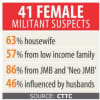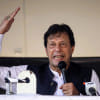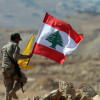The ouster of ISIL from Mosul

It is the considered opinion of scholars and observers of terrorism and extremism that the ISIL capture of Mosul was the most significant development related to an extremist organisation after the cataclysmic event of 9/11. Among several other things, it had proved, and which must be taken cognisance of in addressing this phenomenon, that the extermination of extremist leaders, like al-Awlaki, bin Laden and al-Zarqawi, has done little to stem the violence and spread of the distorted idea of the IS in Europe and the West, the middle East, South and South East Asia.
In fact extremist attacks had intensified, and particularly after the capture of Mosul in June 2014; according to one scholar, 5,000 people fell victim in a single month, to actions by extremist groups claiming affiliation to the IS or al-Qaeda, in places ranging from Paris to Peshawar and to a distant village in Nigeria. In fact 2014 was the most bloody in terms of casualties resulting from terror attacks. According to the then US Director of National Intelligence, James Clapper, 30,000 people were killed in extremist attacks, as per the statistics.
Mosul was not an opportunity target of the IS. Reportedly, a good deal of preparatory work had taken place before a full-scale attack was launched in June 2014. And the impact of the capture of Mosul, short-lived the IS control on it may have been, has been very far-reaching too, something that has affected countries in the West as well as the East, and Bangladesh is a direct sufferer. It offered the aspirants to a so-called Caliphate an opportunity to fulfil that hope. If there have been swelling in the ranks of the IS since 2014, it is because these people who were looking for a 'liberated area' found ways and means to join the IS, Bangladesh being a contributor too.
Given the strategic importance of Mosul, it being a part of the Sunni belt of Iraq, and the fact that the city had come briefly under the pro-Saddam forces in 2004, it was surprising that the city was taken over by the ISIL in the very first year that it announced its emergence after severing its umbilical connection with al-Qaeda, without much effort, in fact in four days only.
And the recapture of Mosul by the Iraqi and the coalition forces last week was in some ways as remarkable as its capitulation in the hands of the IS almost three years ago to the day in June 2014. What had surprised the international community in June 2014, as much as it must have the Iraqi government forces, was the celerity with which a non-state actor, an extremist terrorist organisation, had run through the city with only several hundred of its cadres against an organised force of nearly 25,000 fairly well armed Iraqi forces. This is an aspect which I am sure the students of warfare, particularly of revolutionary and counter revolutionary warfare (R&CRW), will study minutely, as they would also of the IS strategy to occupy a vast swath of land at the very seminal stages of their existence.
If the rapidity of the IS takeover of Mosul had surprised us then, the laborious and painstaking progress of the operation to capture the same city, the second largest in Iraq, by the government forces has surprised us equally now. The strength of the defender vis–à–vis the attacker was, in both instances, very lopsided in ratio. Fighting in built up area (FIBUA) is a completely different ballgame where the traditional ratio between the defender and attacker does not hold good. However, in both the instances the Iraqi forces had the backing of the US air-power, which once again proves the military truth that airpower in FIBUA is of no consequence in the outcome of the battle except that it kills innocent people, a fact so much in evidence in the 8-month long battle for Mosul. As the survivors count their dead, newspaper reports inform us that people in Mosul are suffering from the after effect of aerial bombing, the intensity of which was out quite disproportionate to the number of ISIS fighters on the ground.
The natural question that springs up in one's mind about the Mosul episode is, why has the IS motto of "Remain and Expand" not been followed in this instance. More so, given the background work that went behind the IS assault on, and capture of, Mosul three years ago, despite the infringement of the teachings of the classical text on R&CRW, by a terrorist organisation going for capturing and holding of ground in the very seminal stages of its life, one wonders whether there is validity in the comments that, "much of what has happened since late 2016 can be seen as an exercise in propaganda—expensive, wasteful propaganda."
There was a rationale for the ISIL to go for acquiring real estate to justify its name. The question is, is that rationale no longer extant? If so what does it signify to the rest of the world which is trying to tackle the IS.?
Brig Gen Shahedul Anam Khan, ndc, psc (Retd) is Associate Editor, The Daily Star.

 For all latest news, follow The Daily Star's Google News channel.
For all latest news, follow The Daily Star's Google News channel. 








Comments